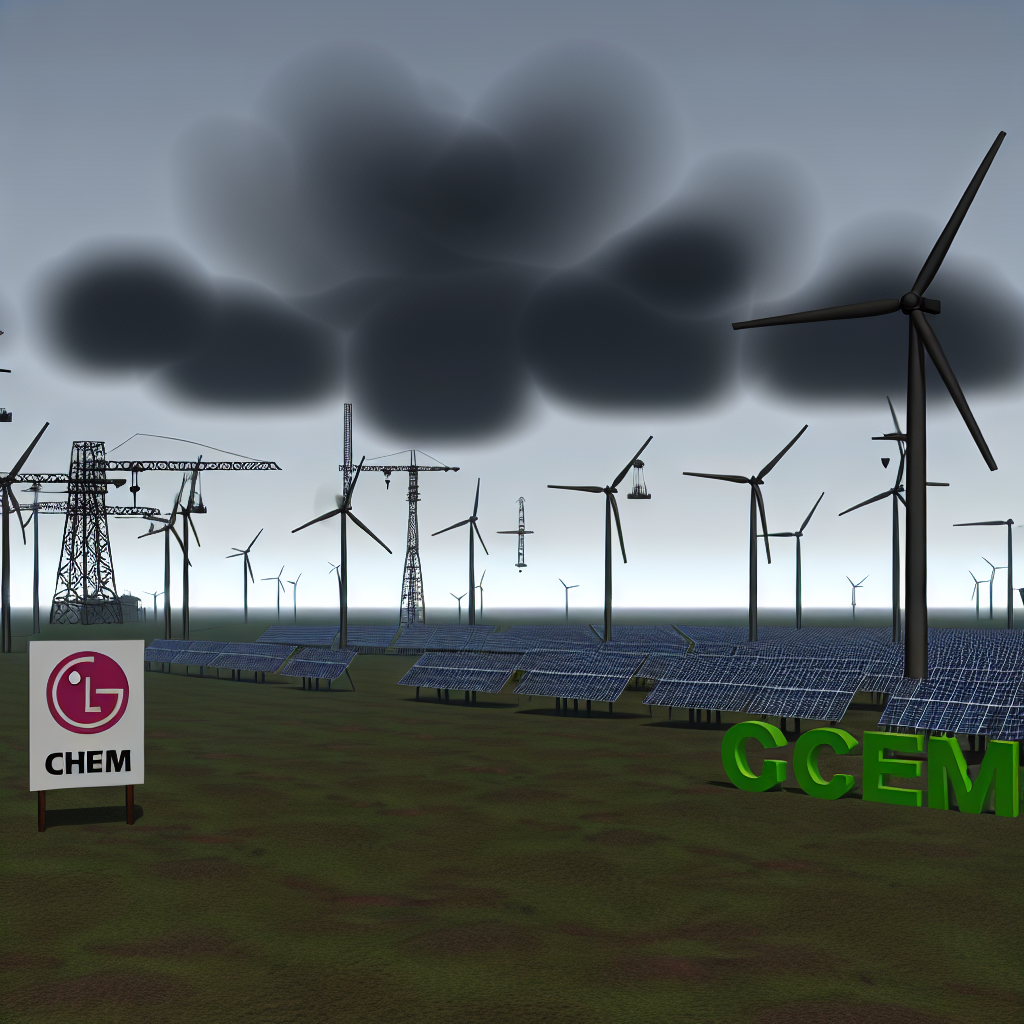LG Chem’s Green Projects Delayed by Economic Uncertainty
LG Chem, one of South Korea’s leading chemical companies and a global player in the battery and green technology sectors, has recently faced significant delays in its ambitious green projects. These setbacks are largely attributed to the prevailing economic uncertainty that has disrupted global markets and investment flows. This article explores the factors behind these delays, the impact on LG Chem’s sustainability goals, and the broader implications for the green energy transition.
Economic Uncertainty and Its Impact on Green Investments
Economic uncertainty, driven by factors such as inflation, fluctuating commodity prices, geopolitical tensions, and the lingering effects of the COVID-19 pandemic, has created a challenging environment for large-scale investments. For companies like LG Chem, which have committed billions of dollars to green projects, this uncertainty translates into cautious capital allocation and project postponements.
According to a recent report by the International Energy Agency (IEA), global investment in clean energy projects slowed by approximately 8% in 2023 compared to the previous year, highlighting the widespread impact of economic volatility. LG Chem’s experience mirrors this trend, as the company has had to reassess timelines and budgets for several key initiatives.
LG Chem’s Green Initiatives: Ambitions and Challenges
LG Chem has been at the forefront of green innovation, particularly in the development of electric vehicle (EV) batteries, sustainable materials, and renewable energy solutions. Some of their flagship projects include:
- Expansion of EV Battery Production: LG Chem planned to increase its battery manufacturing capacity to meet rising global demand for electric vehicles.
- Development of Bioplastics: The company has invested in bio-based plastics to reduce reliance on fossil fuels and lower carbon emissions.
- Renewable Energy Integration: LG Chem aimed to power its manufacturing plants with renewable energy sources to achieve carbon neutrality by 2050.
However, these projects have encountered delays due to rising costs of raw materials such as lithium and cobalt, supply chain disruptions, and tighter financing conditions. For example, the price of lithium carbonate surged by over 40% in early 2023, significantly increasing production costs for battery manufacturers like LG Chem.
Case Study: Battery Plant Expansion Postponed
One notable example is LG Chem’s planned battery plant expansion in Poland, intended to support European EV manufacturers. Initially slated for completion by late 2024, the project has been pushed back by at least 12 months. The delay is attributed to:
- Escalating construction and labor costs
- Uncertainty in demand forecasts due to economic slowdown in Europe
- Challenges in securing long-term supply contracts for critical raw materials
This postponement not only affects LG Chem’s growth trajectory but also has ripple effects on the European EV market, which relies heavily on stable battery supply chains.
Broader Implications for the Green Energy Transition
LG Chem’s delays highlight a broader challenge facing the global green energy transition: the vulnerability of sustainability projects to macroeconomic fluctuations. While governments and corporations have set ambitious climate targets, the path to achieving them is often hindered by financial and operational risks.
Key implications include:
- Slower Adoption of Clean Technologies: Delays in battery production and renewable energy projects can slow down the deployment of EVs and clean energy infrastructure.
- Increased Costs for Consumers: Supply constraints may lead to higher prices for electric vehicles and green products.
- Need for Policy Support: Governments may need to provide stronger incentives and risk mitigation mechanisms to sustain green investments during economic downturns.
Looking Ahead: Strategies for Resilience
To navigate these challenges, LG Chem and similar companies are adopting several strategies:
- Diversifying Supply Chains: Reducing dependence on volatile raw material markets by sourcing from multiple regions.
- Innovating in Battery Technology: Investing in next-generation batteries that use less expensive or more abundant materials.
- Collaborating with Governments: Engaging in public-private partnerships to secure funding and policy support.
These approaches aim to build resilience against economic shocks and ensure continued progress toward sustainability goals.
Conclusion
LG Chem’s experience with delayed green projects underscores the complex interplay between economic conditions and the pursuit of sustainable development. While economic uncertainty has temporarily slowed progress, it also offers valuable lessons on the importance of flexibility, innovation, and collaboration in the green transition. As LG Chem recalibrates its strategies, the company remains a critical player in shaping a more sustainable future, demonstrating that even in challenging times, commitment to green innovation can endure.





